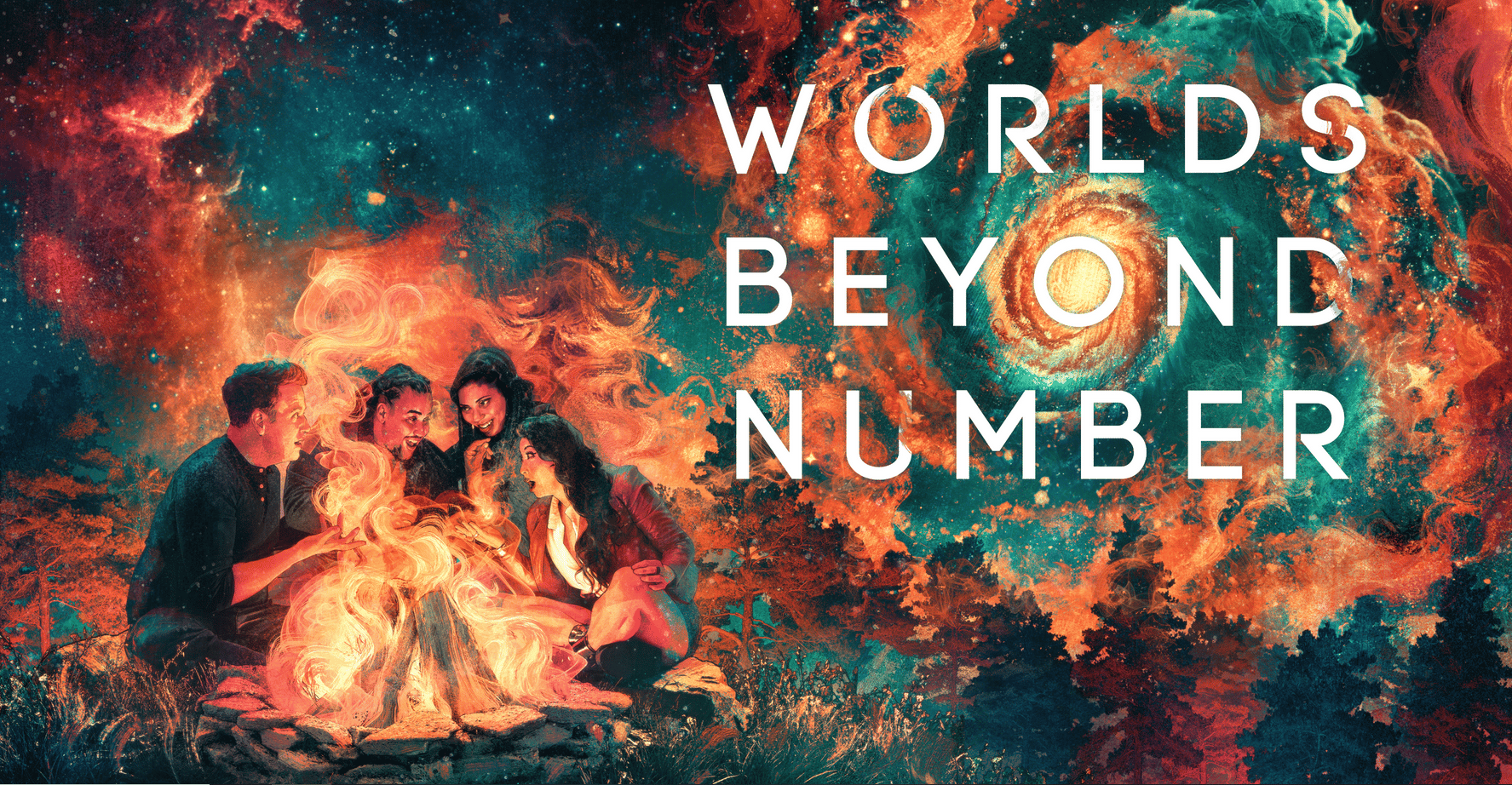- Throwing Irregular Shapes
- Posts
- The Things That Aren't Said
The Things That Aren't Said
Thinking about leaving stuff out of settings and gameplay
One of the things I mentioned in the last issue was that Nina and I have the world of Umora as one of the influences and inputs for a setting we’re working on. This is the setting for Worlds Beyond Number’s The Wizard, The Witch & The Wild One game, which is available as a podcast, and which I’d encourage you to listen to. For purposes of this issue, though, I’m interested in the things that aren’t used in that setting, and that game. I’ll try to avoid spoilers, although I suppose there are inherently some just in discussing the setting and rules.

The WBN header, art by Corey Brickley
So one of the very first thing is that the game does not contain clerics. I don’t know if this was ever actually stated outright, but it’s a thing. There are things in the setting that are god-like, but they exist in a spectrum of non-human, sometimes non-corporeal, creatures called spirits, which can be very small or very large. One of the player characters is such a spirit, Lou Wilson’s paladin Eursulon. There are druids (I think), but they’re universally refered to as shapeshifters, and they have a particular ethnic or national affinity in the setting. There are also witches, a new class which kinda-sorta fills the support role that the cleric often occupies, but not really.
The second big thing is that at least as far as the game has gone so far, there’s no sign of any other intelligent species - no elves, no dwarves, halflings, gnomes or orcs, but also no goblins, no merfolk, and so on. There are dragons.
But here’s the thing that I’m now noticing has been really removed - creature types. A big chunk of 5th Edition - and indeed previous editions - depends on being able to categorise creatures as aberration, fey, undead, celestial, fiend, or what-have-you. Lots of spells and abilities in 5e affect particular creature types - undead are the top of this list, generally, but this mechanism is scattered up and down the game text.
For instance, the spell Detect Evil and Good (which is completely different compared to previous editions) starts with the line: “For the duration, you sense the location of any Aberration, Celestial, Elemental, Fey, Fiend, or Undead within 30 feet of yourself.” In the standard rules, that’s a first level cleric and paladin spell. It hasn’t been used at all, by anyone, not even the paladin player character, in 54 episodes (and 5 prelude episodes). It’s interesting, in pure game terms, to have that gone, particularly since its arcane counterpart, Detect Magic, is definitely still included.
But I feel like it’s also absolutely necessary for the setting for that spell to not be there. Spirits have a capability called glamour, with which they can disguise themselves - with greater or lesser success - as ordinary mortals. If they could be detected as fey, undead, fiends, celestials, etc., that ability would be fairly meaningless. So it’s gone. Detect Magic may pick up the actual glamour - that’s not wholly clear to me, though - but at most, it senses an illusion. And in the setting itself, spirits are spirits. Separating them into - at the very least - the types mentioned in Detect Evil and Good would provide categories and taxonomies which they don’t necessarily have in the setting.
Is the whole concept of creature types gone? Possibly! The Witch class - the biggest look into the rule mechanics of the game we have access to - doesn’t use the term “beast” when referring to possible familiars, but instead lists specific animals, and says that “any CR 0 creature” might be approved by the GM. And yet, fascinatingly, the spell Detect Evil and Good is there on the Witch spell list, and the Witch spell Allied Hunter definitely references the Beast type. That might be for players outside of the setting of Umora using the class, though.
So maybe what’s happening here is that the players have just agreed not to use the spell, in the same way as they have never uttered the word “druid” at any point. Honestly, that seems even more interesting than the functionality not being there at all - I am reasonably certain I couldn’t do that.